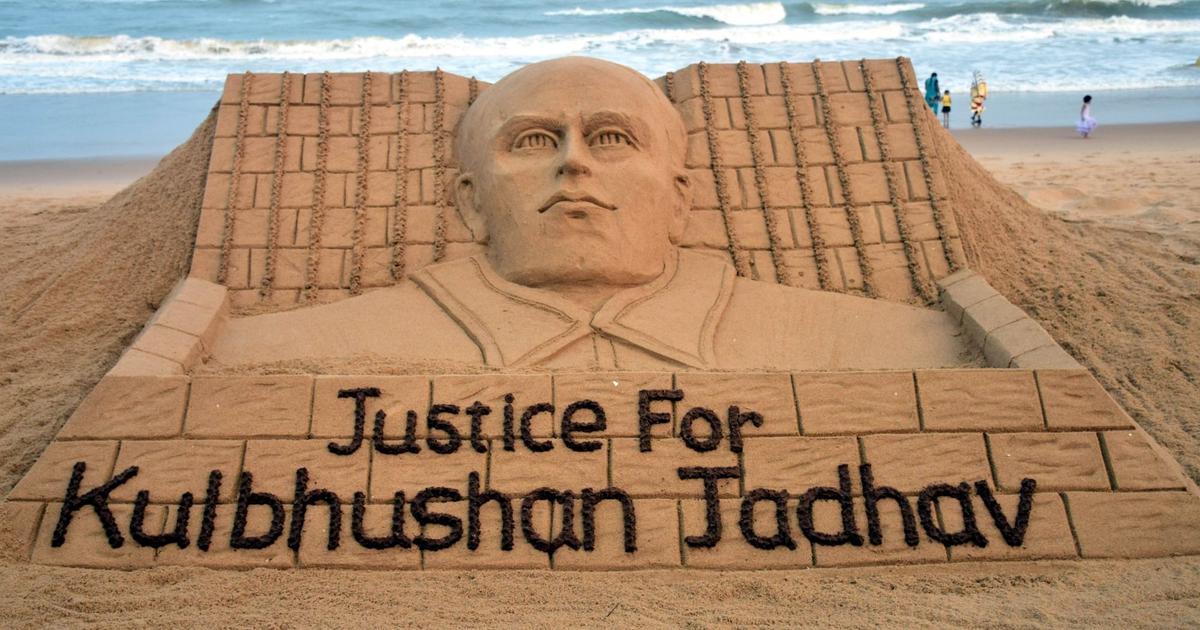The International Court of Justice (ICJ), on July 17, 2019 (Wednesday), ruled that Kulbhushan Jadhav, a former officer of the Indian Navy sentenced to death in Pakistan, cannot be executed immediately and must be given adequate access to legal facilities so as to ensure a fair trial.
The verdict came as a major win for India on the international stage and will in the future reshape New Delhi’s approach to complex bilateral issues.
Mr. Jadhav was allegedly abducted from Iran by Pakistani intelligence operatives and later sentenced to death by a military court in that country on charges of terrorism and espionage. The ICJ verdict has given a glimmer of hope to Kulbhushan Jadhav’s family and well-wishers in India.
The Implications of the ICJ Verdict
After Mr. Jadhav was sentenced, India filed a petition at the ICJ seeking a revocation of the death sentence dealt out by the military court. India cited the numerous violations of international treaties committed by Pakistan.
India also posited that Pakistan had extracted inconsistent confessions from Mr. Jadhav under coercion, during a three-week period when the captive did not have access to legal counsel or advice from the Indian embassy in Islamabad.
Aside from advocating a fair trial for the former Navy officer, the ICJ verdict also urged the Pakistani government to review his conviction and sentencing. As such, the verdict has come as a major victory for India, both in the legal and diplomatic arenas.
Pakistan, on the other hand, has accused India of ambushing it during the proceedings at the Hague.
In the past, India has not always been so successful at securing the release of its citizens detained in Pakistan, especially when the government tried to achieve this goal solely through the means of bilateral negotiations.
A Strategic Route to Success
In this case, India changed tactics, and attempted to exploit the growing perception of Pakistan as a ‘rogue state’ on the international arena.
At the ICJ, India stressed Pakistan’s dubious history of abiding by international treaties and its frequent disregard of Article 36 of the Vienna Convention, which deals with Consular Relations.
Article 36 was drafted to provide some guidelines for the arrest, detention, and trial of a foreign national by any government. India’s counsel highlighted the fact that Pakistan had not followed due process, as necessitated by the Vienna Convention.
To begin with, when the arrest was made, an immediate notification of the incident was not sent to the Indian consular officials posted in Islamabad. In fact, a period of more than three weeks had passed before India was informed about the arrest.
During those three weeks, the Indian counsel told the ICJ, Mr. Jadhav was subjected to various kinds of coercive practices while in custody and made to sign a confession. All of this occurred without Mr. Jadhav being given access to adequate legal advice or representation in Pakistan.
Moreover, Pakistan had prevented any communication between the arrested officer and Indian consular officials in Islamabad. Officials in Pakistan had also failed to inform Mr. Jadhav of the rights he enjoyed under the purview of the Vienna Convention.
Military Courts and Rights Violations
Kulbhushan Jadhav was sentenced by a military court, which in itself put his jailers in troubled international waters. The legitimacy of military courts had never been well-established vis-a-vis the international legal system. Post World War II, military courts emerged in military dictatorships and authoritarian regimes as a way of delivering fast and biased verdicts on politically sensitive cases.
Pakistan’s Military Court was purportedly set up as an anti-corruption and counter-terrorism initiative in 2015, and has since delivered several skewed and arbitrary verdicts. As the Indian counsel pointed out, Mr. Jadhav’s sentencing in the summer of 2017 was based on confessions extracted in captivity. Hence, their validity was suspect and executing him on the basis of these confessions would be illegal.
Concluding Thoughts
By denying Mr. Jadhav consular access, Pakistan has committed gross violations of the Vienna Convention as well as the International Covenant on Civil and Political Rights (ICCPR), which recognizes the right of any person charged of criminal activity to build an effective defense and prove his or her innocence.
Ironically, if Pakistani operatives had followed due process before sentencing Mr. Jadhav on charges of espionage, India might not have been able to take the case to the doorstep of the ICJ. By trying to circumvent proper legal procedure, Pakistan has opened itself to allegations of unfairness and duplicity.
It is hoped that the ICJ’s verdict will grant enough leverage to the Indian establishment to demand a total revocation of the death sentence.
Banner Image Credit: Renowned sand artist Sudarsan Pattnaik’s creation to press for “Justice for Kulbhushan Jadhav” in Puri on May 15, 2017. | IANS
![]()



